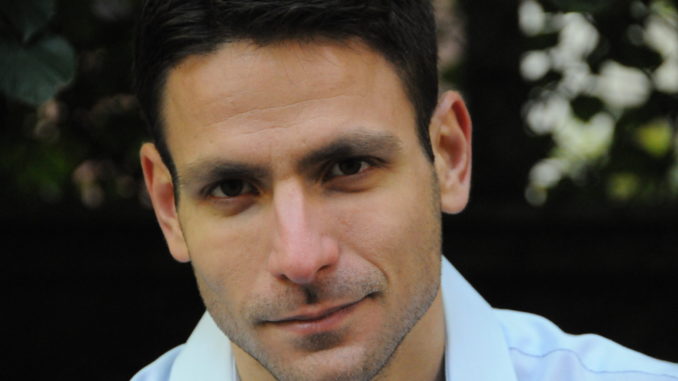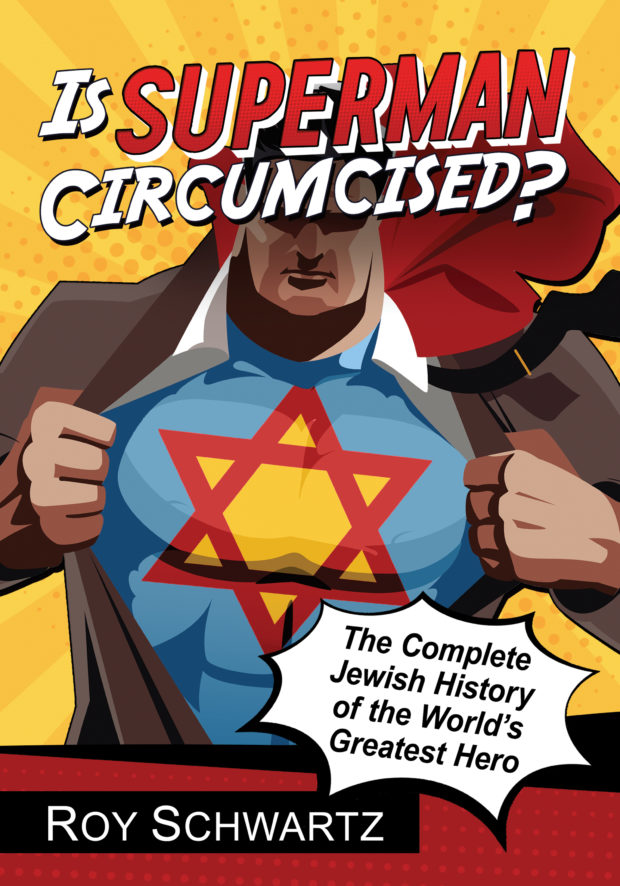

Review Fix chats with “Is Superman Circumcised†author Roy Schwartz who discusses the inspiration behind the book and so much more.
About the Book:
Superman is the original superhero, an American icon, and arguably the most famous character in the world—and he’s Jewish! Introduced in June 1938, the Man of Steel was created by two Jewish teens, Jerry Siegel, the son of immigrants from Eastern Europe, and Joe Shuster, an immigrant. They based their hero’s origin story on Moses, his strength on Samson, his mission on the golem, and his nebbish secret identity on themselves. They made him a refugee fleeing catastrophe on the eve of World War II and sent him to tear Nazi tanks apart nearly two years before the US joined the war. In the following decades, Superman’s mostly Jewish writers, artists, and editors continued to borrow Jewish motifs for their stories, basing Krypton’s past on Genesis and Exodus, its society on Jewish culture, the trial of Lex Luthor on Adolf Eichmann’s, and a future holiday celebrating Superman on Passover. A fascinating journey through comic book lore, American history, and Jewish tradition, this book examines the entirety of Superman’s career from 1938 to date, and is sure to give readers a newfound appreciation for the Mensch of Steel!
About the Author:
Roy Schwartz has written for newspapers, magazines, websites, academic organizations, law firms, tech companies, toy companies, and production studios. He has taught English and writing at the City University of New York and is a former writer-in-residence at the New York Public Library. He is the director of marketing and business development of a regional law firm.
Review Fix: What inspired this book?
Roy Schwartz: Is Superman Circumcised? actually started out as my grad thesis, which won second place in the annual NYU thesis competition. That led to some press, which led to a publishing contract, which led to a writer-in-residence fellowship at the New York Public Library. A brisk 6.5 years later, the book’s finally out.
I’ve always been interested in the intersection of pop culture and critical inquiry. In undergrad at the New School University I wrote papers like “Starship Storm Troopers: Themes of Propaganda and Indoctrination in Paul Verhoeven’s Starship Troopers.†A few years back a couple of books came out about the Jewish roots of superhero comics, and I felt I had more to say. I didn’t realize just how much more until I started researching. Comic book history, American history and modern Jewish history are intertwined, and it’s fascinating to examine each from the other perspectives. Which is essentially the book.
Review Fix: What was your research process like?
Schwartz: First, I read almost every Superman comic book and strip ever published, going back to 1938. I listened to every radio show and watched every movie, TV show and cartoon. Read most of the prose novels and probably every article ever written about him in the American press. I like to say that it was a dirty job, but someone had to do it.
I also did a lot of historical research, which is where the NYPL fellowship came in. To give you an idea how intense it was, the research librarian whom I worked with reached out to a colleague at the Berlin public library to help track down the source of a Hitler quote, which we eventually found in the Munich police archives from 1923.
For the Judaic aspects, I consulted a friend who’s a conservative rabbi with a PhD in Jewish Studies.
Once I put it all together, the cultural themes and historical context of superhero comics, especially Superman, became very clear. It practically wrote itself.
Review Fix: What’s your favorite part of the book?
Schwartz: I really don’t have a part I like more than others. The book is more or less chronological, and early on I say fewer original things about the comics but I go much deeper into the history and folklore behind them. As the book progresses I break new ground, analyzing comics that have been overlooked from this perspective throughout the decades. And along the way I delve into fun tangents like whether Superman is liberal or conservative or how he stacks up against Nietzsche’s Übermensch.
Review Fix: Any challenges?
Schwartz: Substantively, the challenge was to make sure I don’t fall into revisionism and read too much into things. I tried to be responsible in saying when something is factual, obvious, likely, possible or just playful.
The challenge in writing it was keeping it entertaining. Easy reading takes hard writing. The book is technically a scholarly work, with almost 200 sources not counting comics, but it’s written in plain English and meant to be read for pleasure. Because if it’s not fun, what’s the point?
Review Fix: What was your favorite Superman moment?
Schwartz: As the author of the book, it was all the moments where I discovered something no one had before. I’d first be incredulous that I’m really the first one, then I’d verify that I really am, and then I’d get to say something new about Superman, or comics, or Judaism, or American history. It’s pretty cool when that happens.
As a Superman fan, choosing one moment is impossible. But I’ll go with the helicopter rescue scene from 1978’s Superman: The Movie. It’s perfect. The buildup of suspense, the double jeopardy, Superman’s big reveal to the world to that rousing John Williams score, the crowd reaction. The great dialogue, when he catches Lois from falling to her death and says “Easy miss, I’ve got you†and she responds “You’ve got me? Who’s got you?!†It puts a smile on my face every time.
Review Fix: Worst moment for the Last Son of Krypton?
Schwartz: He’s had plenty of those as well. Probably 1987’s abysmal Superman IV. Although at least he’s recognizably Superman in it, which is more than I can say for most later films.
Review Fix: Most underrated Superman villain?
Schwartz: Terra-Man! Just kidding. That’s actually the issue with his rogues’ gallery—it may not be as good as Batman’s (no one’s is), but several of them are better than they’re often given credit for. Luthor, Parasite, Metallo, Brainiac, Cyborg Superman, Zod and Darkseid are all great, genuinely frightening villains.
Review Fix: What did you learn that you weren’t expecting?
Schwartz: Just how heavily rooted the comic book industry and superhero genre are in the Jewish culture that created them. How many Jewish themes and signifiers and narratives can be found in Superman’s comics—and throughout his career, not just WWII. And how conscious and even deliberate many of his authors have been in incorporating them. I knew enough to want to write a book about it, but I had no idea about the depth and scale. I originally pitched it as 55,000 words and by the time I finished my first draft it was 196,000. (Don’t worry, the book is much shorter.)
Review Fix: How do you want the book to be remembered?
Schwartz: Honestly, as a love letter to Superman. I love history, and I love my heritage, and I love comics, so this was a very natural book for me to write. But more than anything, I hope it gives people an appreciation for the Man of Steel. He’s such a round, rich, relatable character.
Review Fix: Why should a Superman fan read this?
Schwartz: Because you’ll learn a lot of new cool stuff about him. The book looks at superman from a Jewish perspective, but it isn’t a Jewish book. It’s not just for Jews or those with interest in Jewish matters (although there’s enough in it to make it a fun “Judaism 101â€). It’s about a lot more, and it’ll take you on a journey through the ages examining everything Superman. His comics, his movies, the behind-the-scenes stories. I’m a diehard comic book fan and Superman fan, and I made sure it’s a worthy book for fellow fans.
Review Fix: What’s next?
Schwartz: I’m under contract for my next book, which I can’t say too much about except that it’s also historical nonfiction and is a graphic novel. Work on it is slow since I’m still busy promoting Is Superman Circumcised?
After that I’m hoping to return to fiction. My last book is an illustrated middle-grade dark fantasy, The Darkness in Lee’s Closet and the Others Waiting There. We’ll see.
In the meantime, the book has opened a lot of doors for me. I’m now a recurring contributor to CNN.com, where I write about pop culture. You can read my first two pieces here and here.
Review Fix: Anything else you’d like to add?
Schwartz: Some shameless plugs, if I may. Please check out the book. It’s available everywhere books are sold. You can read the first three chapters for free on Amazon through the “Look Inside†feature. And if you like the book, please leave a review!
You’re also invited to follow me on Twitter, Instagram and Facebook and at royschwartz.com. It’s where most of my writing lives and where I announce things like author talks, new articles, book sales, freebies, and other stuff.


Leave a Reply